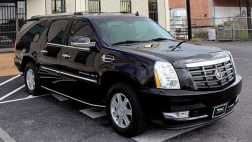Back seat driving might be the biggest annoyance, but it’s the front passenger seat that is most distracting, according to a study in the UK. More than a third of the motorists surveyed say their spouse or partner is the passenger that distracts them most, increasing their chances of crashing.
When asked who their least favourite passengers were, 16 per cent said their significant other. Just 12 per cent said hitchhikers. The survey, by insurance comparison site Confused.com, found a fifth of drivers have had an accident when someone else was in the car. One in 14 of those drivers blamed the behaviour of passengers for the crash.
When it came to naming passengers’ most annoying habits, back-seat driving came top. Other things that drive us up the wall include too much talking and fiddling with the radio. Overall, more than a third of drivers (35 per cent) say passengers do affect their driving behaviour. The survey of 2000 motorists highlighted how travelling with a troublesome passenger can impact on a driver’s behaviour in a number of ways.
More than one in five drivers (21 per cent) admit getting more easily distracted when they have a passenger in their vehicle, with a further one in seven (15 per cent) admitting to getting stressed by the actions of their passengers. One in four motorists (25 per cent) also claim to feel nervous when they have someone travelling in the car with them.
Parents top the list as motorists’ least favourite car companion (16 per cent), closely followed by drivers’ husbands or wives (14 per cent). Drivers are most likely to change their behaviour when travelling with children (32 per cent) in the car, the research reveals. Of these, more than three quarters (79 per cent) admit driving more carefully with children on board, with a further 29 per cent saying that they concentrate more on the road with little ones on board.
Younger drivers, aged 18 to 34, appear to be the most affected by their passengers, with nearly half of these motorists (47 per cent) admitting that their driving can change according to who is sitting in the passenger seat. And one in seven (15 per cent) of motorists admitting singing along to music and playing games (10 per cent) with their random companions.


.jpg)
.jpg)


.jpg)
.jpg)
.jpg)





.jpg)
.jpg)



.jpg)



.jpg)